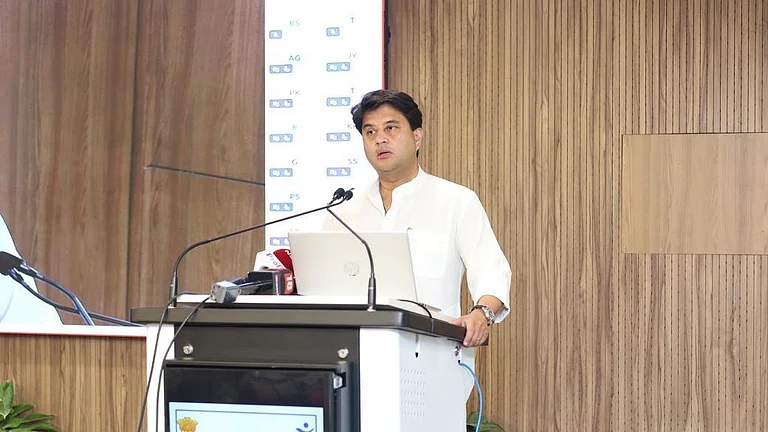Elon Musk’s satellite-based internet service, Starlink, is expected to begin operations in India within the next year, following a letter of intent received from the Department of Telecommunications (DoT).
Starlink to Launch in India Within a Year: All About its Price, Bandwidth, Rollout Plans
Starlink reportedly plans to offer between 600 and 700 gigabits per second (Gbps) of bandwidth to Indian users initially. However, the initial beaming capacity will support only 30,000 to 50,000 users at a time
According to a new report by NDTV Profit, citing official sources, the company plans to offer between 600 and 700 gigabits per second (Gbps) of bandwidth to Indian users initially. However, the initial beaming capacity will support only 30,000 to 50,000 users at a time.
An official told the broadcaster that Starlink aims to eventually scale up to a massive 3 terabits per second (Tbps) by 2027.
This development comes after a prolonged wait—Starlink finally received its first regulatory nod to operate in India in April. However, the company still needs to obtain at least two additional licences from various regulatory agencies and await DoT’s final spectrum allocation.
Meanwhile, competitors such as Eutelsat OneWeb, backed by Bharti Enterprises, and Jio-SES, backed by Reliance, have already secured Global Mobile Personal Communication by Satellite (GMPCS) licences from the DoT and authorisation from IN-SPACe.
Starlink Nears Operational Readiness
The DoT is reportedly in the process of finalising bank guarantee arrangements with satellite service providers and is likely to grant Starlink its operating licence by mid-June. However, officials have emphasised that the licence will only be granted if Starlink fully agrees to the proposed terms, which are currently under review by the company.
In a sign of rapid progress, Starlink’s Global Licensing Head, Parnil Urdhwareshe, recently held discussions with senior DoT officials regarding rollout plans and regulatory compliance, according to the report.
NDTV Profit also reports that Starlink has identified two to three locations for its ‘Earth stations’—ground-based facilities that connect its satellite network to the internet. Each of these stations is expected to house up to nine gateways, which are crucial in routing user traffic through the satellite network to the global internet backbone.
Consumer Plans
Starlink is planning to launch a direct-to-consumer (DTC) model in India, allowing customers to bypass traditional internet service providers such as Bharti Airtel, Vodafone Idea, and Reliance Jio.
Despite this DTC focus, Starlink has already signed business-to-business (B2B) agreements with Airtel and Jio, enabling them to offer satellite internet services as resellers.
The DTC offering is reportedly aimed at premium users, with the cost of Starlink’s ground equipment expected to range between $250 and $600 (approximately Rs 20,000 to Rs 50,000). While these prices are in line with international markets, Starlink is also likely to factor in India’s price-sensitive consumer base and its low data tariffs.
